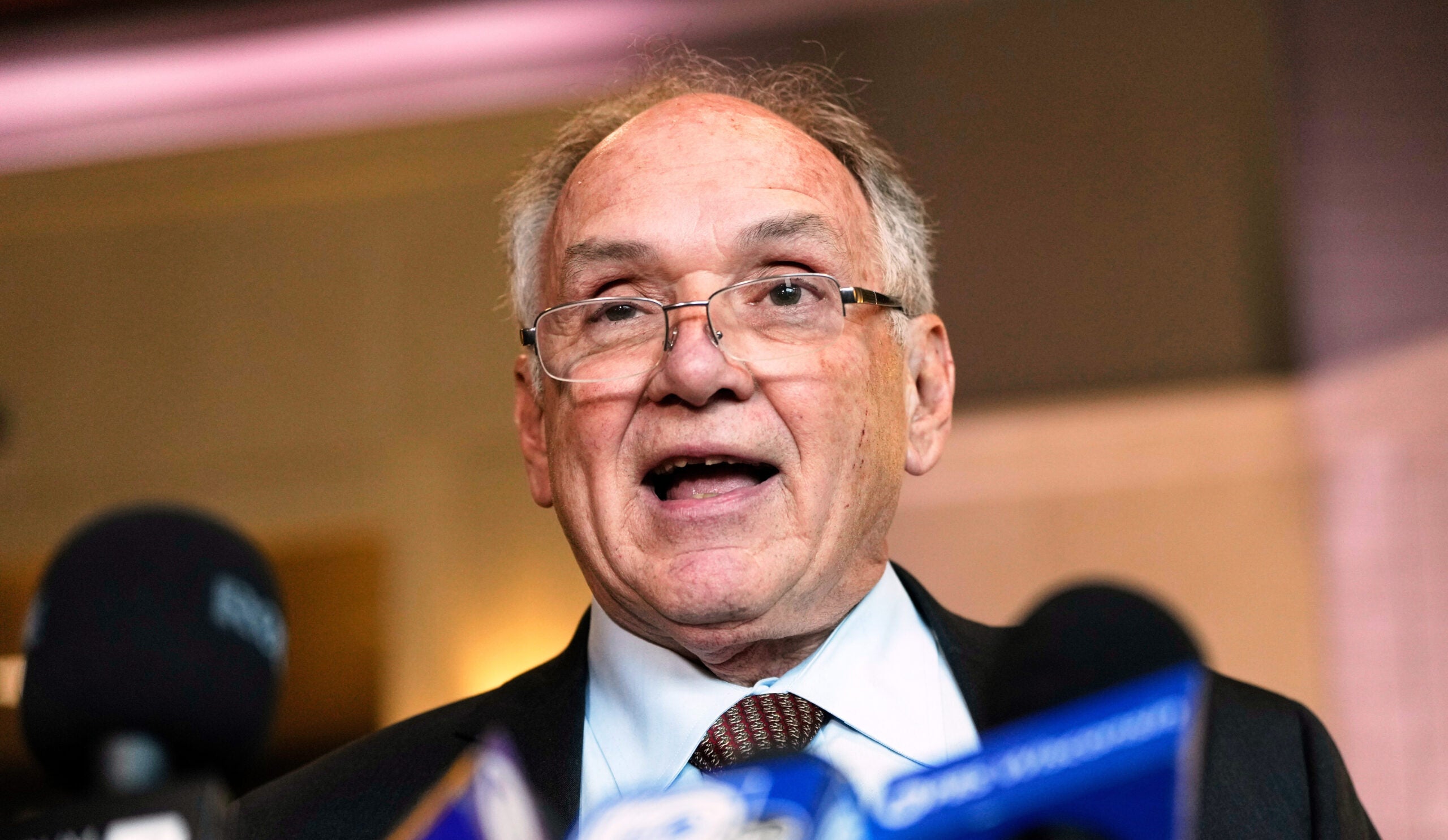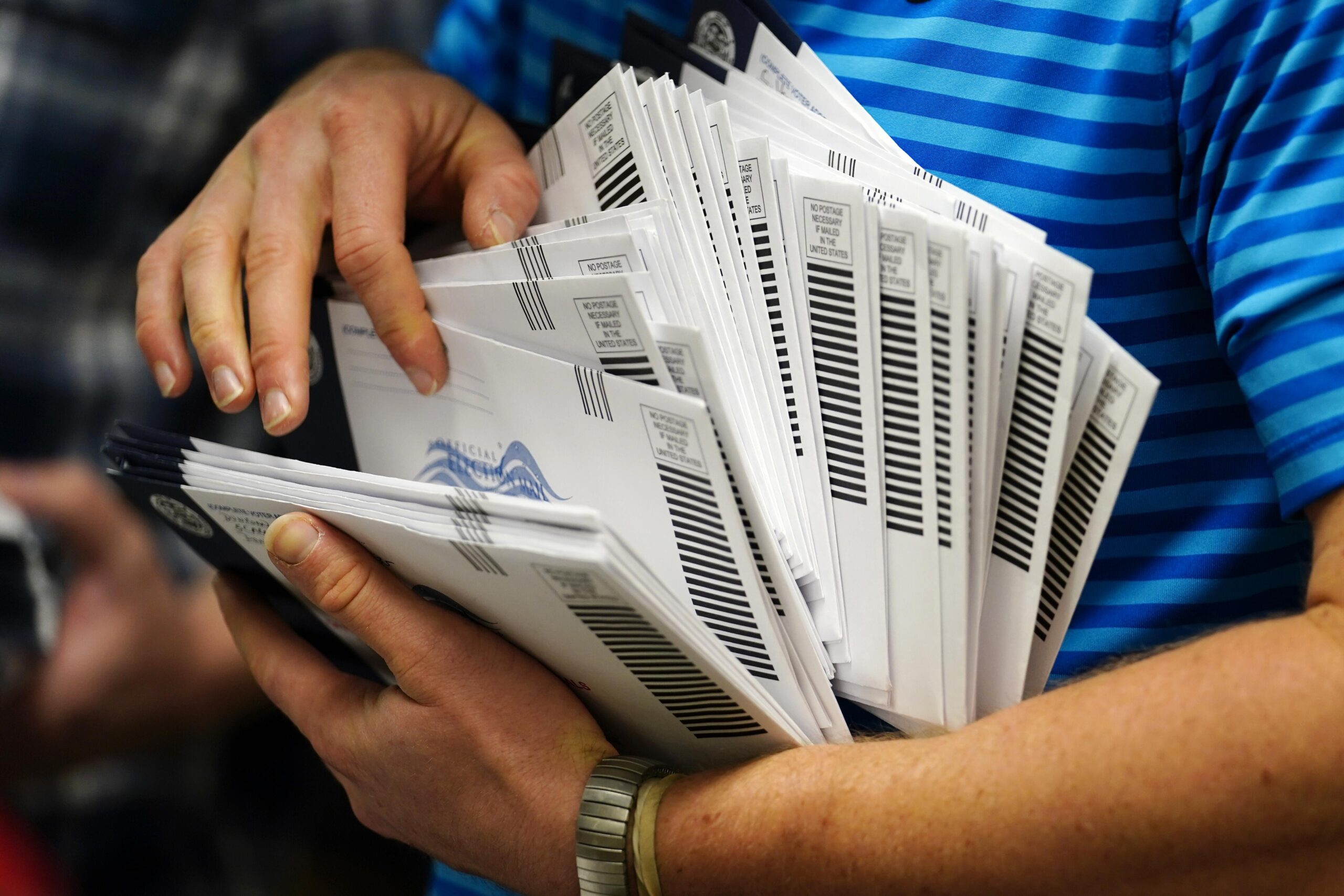The Wisconsin Supreme Court has rejected the Trump campaign’s state lawsuit seeking to overturn President-elect Joe Biden’s victory in Wisconsin, ruling that if the president had problems with Wisconsin’s rules for voting, he should have challenged them before the election, not after.
The result was significant on a court where conservatives hold a 4-3 majority, which has now handed Trump and his allies four losses in the past two weeks.
The ruling came just hours before Wisconsin’s presidential electors met to officially cast their votes for Biden and Vice President-elect Kamala Harris.
News with a little more humanity
WPR’s “Wisconsin Today” newsletter keeps you connected to the state you love without feeling overwhelmed. No paywall. No agenda. No corporate filter.
Writing the majority 4-3 opinion, conservative Justice Brian Hagedorn said Trump lost his right to challenge a variety of absentee voting guidelines handed down by the Wisconsin Elections Commission, some of which had been on the book for a decade.
“Our laws allow the challenge flag to be thrown regarding various aspects of election administration,” Hagedorn wrote. “The challenges raised by the Campaign in this case, however, come long after the last play or even the last game; the Campaign is challenging the rulebook adopted before the season began.”
In a separate concurring opinion, Hagedorn also dismissed the idea that bad guidance from the state had altered the outcome of the election.
“At the end of the day, nothing in this case casts any legitimate doubt that the people of Wisconsin lawfully chose Vice President Biden and Senator Harris to be the next leaders of our great country,” Hagedorn wrote.
Hagedorn’s majority opinion was joined by liberal Justices Ann Walsh Bradley, Rebecca Dallet and Jill Karofsky.
Conservative Justices Patience Roggensack, Annette Ziegler and Rebecca Bradley each dissented, arguing the court should have ruled on the merits of the case rather than dismissing it because of timing. All three were sharply critical of Hagedorn’s ruling, writing that the court had shirked its duty.
While none of them definitively declared that they would have overturned the state’s election results, Roggensack’s dissent suggested — at the very least — that she was open to the Trump campaign’s arguments challenging tens of thousands of votes.
“In the case now before us, a significant portion of the public does not believe that the November 3, 2020, presidential election was fairly conducted,” Roggensack wrote. “Once again, four justices on this court cannot be bothered with addressing what the statutes require to assure that absentee ballots are lawfully cast.”
Trump’s lawsuit was an offshoot of the recount his campaign asked for in Dane and Milwaukee counties. Had it succeeded, it would have tossed more than 220,000 absentee ballots cast in those counties, while leaving votes cast in 70 other counties untouched.
Those ballots challenged by the Trump campaign include roughly 170,000 ballots cast by people who voted in person before Election Day.
Trump argued those ballots should be rejected because the people who cast them did not fill out separate written applications the way absentee voters do when they vote by mail.
Hagedorn dismissed that, noting that voters there used a form endorsed by the state that had been in place for more than a decade.
“Waiting until after an election to challenge the sufficiency of a form application in use statewide for at least a decade is plainly unreasonable,” he wrote.
The Trump campaign also challenged another 28,000 ballots from voters who said they were “indefinitely confined,” which lets them submit an absentee ballot application without providing a copy of a photo ID.
In a separate ruling issued earlier Monday, the entire court ruled it was up to individual voters to decide whether they were indefinitely confined. Hagedorn repeatedly rejected the idea that these votes should be rejected.
“The challenge to the indefinitely confined voter ballots is meritless on its face,” Hagedorn wrote.
While Roggensack’s ruling suggested she might agree with Hagedorn on those voters, she embraced the Trump campaign’s challenge to two other groups of voters.
Trump wanted to strike “no less than 5,517” ballots where clerks completed a witness’ address, which is required under Wisconsin Election Commission guidance.
“My conclusion that errors in the certification of absentee ballots require discarding those ballots is consistent with our precedent,” Roggensack wrote.
In addition, Trump would have rejected 17,217 ballots collected at “Democracy in the Park” events sponsored by the city of Madison earlier this year. Republicans raised concerns about those events before they were held but never challenged them in court.
Roggensack suggested those events were unlawful because Wisconsin law does not permit absentee ballot drop boxes, and the people collecting ballots were not employees of the Madison City Clerk.
“The poll workers who staffed Democracy in the Park were volunteers,” Roggensack wrote. “They were not employees of the City of Madison Clerk’s office.”
The ballots flagged by Roggensack totaled 22,788, a significant amount in a state Biden won by 20,682.
This was the fourth time this month the Wisconsin Supreme Court rejected a lawsuit brought by Trump or his allies. In each case, Hagedorn’s vote proved pivotal.
On Dec. 3, Hagedorn ruled with the court’s liberals that Trump’s lawsuit in state court must start in circuit court first.
That same day, the court issued a brief order rejecting another lawsuit filed by Chippewa Falls attorney Karen Mueller.
On Dec. 4, Hagedorn wrote a scathing opinion rejecting a lawsuit brought on behalf of a group called the “Wisconsin Voters Alliance.” That case, which was filed by a Republican attorney with the Chicago-based Thomas More Society, asked the court to reject all of the more than 3.2 million votes cast in Wisconsin’s election and require the state Legislature to pick Wisconsin’s electors instead.
Trump and his allies also lost twice in federal court in addition to another case which was rejected by the U.S. Supreme Court.
Wisconsin Public Radio, © Copyright 2025, Board of Regents of the University of Wisconsin System and Wisconsin Educational Communications Board.







